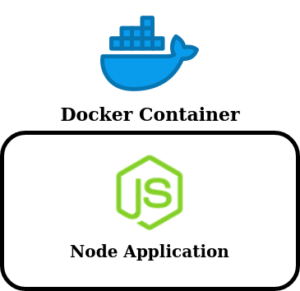For professionals employed as full-stack developers or backend developers, acquiring proficiency in Node.js has become imperative. Being well-versed in Node.js is now a crucial skill for anyone in these roles. Prioritizing the preparation of Node.js interview questions and responses is essential for success in interviews across the industry.
The categorization of Node.js questions and answers depends on whether you are a beginner or an experienced professional. We have structured our content to cater to both levels of expertise.
Node.js, as a server-side platform utilizing JavaScript, has gained widespread adoption across various organizations. If you’re gearing up for a Node.js job interview during a career change, it’s essential to refine your skills and be well-prepared for common node.js interview questions in 2024.
Table of Contents:
Freshers Node.js Interview Questions & Answers
Medium Node js Questions and Answers
Node.js Question Answers for Intermediate
Professional Node.js Questions & Answers
Node.js Interview Questions & Answers for Experienced Professional
Interview Tricks and Tips
Essential Node.js Interview Questions & Answers
Conclusion
Node Interview Questions Answers for Freshers / Beginners
These list of questions and answers are suitable for those who falls within 0-2 years for node experience.
Q1. Describe Node.JS?
Ans: Node.js is a cross-platform, open-source JavaScript runtime environment enabling the execution of JavaScript code on the server side. Originating from the work of Ryan Dahl in 2009, Node.js is specifically crafted for constructing scalable network applications, especially those demanding robust Input/Output (I/O) capabilities.
Q2. How does Node.js works?
Ans: Node.js operates on an event-driven, non-blocking I/O model. It utilizes the V8 JavaScript runtime engine to execute JavaScript code on the server side efficiently.
Q3. Where can you use Node.js?
Ans: You have the flexibility to apply Node.js in scenarios with high I/O demands, such as video streaming sites. Additionally, it proves beneficial for crafting a diverse range of applications, including real-time web applications, network applications, general-purpose applications, and distributed systems.
Q4. Is node js multithreaded by default?
Ans: No
Q5. Why is Node.js single threaded?
Ans: Performance. Node.js adopts a single-threaded architecture primarily for its asynchronous, event-driven programming model. The decision to use a single-threaded approach was a deliberate design choice.
Q6. Is NodeJS backend or frontend?
Ans: There is a prevailing misconception among developers that Node.js is exclusively a backend framework solely utilized for constructing servers. Contrary to this belief, Node.js is a versatile platform that can be employed for both frontend and backend development.
Q7. What is npm?
Ans: npm (Node Package Manager) is the default package manager for Node.js. It allows developers to install, share, and manage third-party packages or libraries easily.
Q8. What is the purpose of package.json in Node.js?
Ans: package.json is a metadata file in a Node.js project. It includes project details, dependencies, scripts, and other configuration information. npm uses this file to manage project dependencies and execute scripts.
Q9. Describe the differences between require and import in Node.js?
Ans: The utilization of require pertains to CommonJS modules, which are native to Node.js, while import finds its application in ECMAScript modules (ES6 modules).
Node Questions and Answers for Intermediate level Experience
The provided list of questions and answers is tailored for individuals with 3-5 years of experience in Node.js. It’s designed to be relevant and beneficial for those in the early stages of their Node.js journey.
Q1. What do you mean by Asynchronous API?
Ans: All APIs in the Node.js library are asynchronous, which means they operate in a non-blocking manner. In practical terms, this signifies that a Node.js server doesn’t wait for an API to return data. Instead, it proceeds to the next API call after invoking it. The notification mechanism of Events in Node.js facilitates the server in receiving responses from preceding API calls.
Q2. What is Input/Output (I/O) means in Node?
Ans: I/O, short for Input/Output, in the realm of computing denotes the interaction between a computer system and external devices or processes. This interaction encompasses the exchange of data to or from a medium, which may take the form of a physical device, a network connection, or files within the computer system.
Q3. Differentiate between Callbacks and Promises in Node.js?
Ans: Callbacks are functions passed as arguments to other functions, executed after the completion of an asynchronous operation. Promises, on the other hand, represent the eventual completion or failure of an asynchronous operation and provide a cleaner way to handle asynchronous code.
Q4. How can you handle errors in Node.js?
Ans: Errors in Node.js can be handled using try…catch blocks for synchronous code and using .catch() for Promises. Additionally, middleware functions in Express.js can be used for error handling.
Medium Level Node Interview QnA
the questions and answers provided are curated to be particularly relevant and beneficial for individuals with 6+ years of experience in Node.js. They are crafted to align with the knowledge and skill level of those in the early stages of their Node.js journey.
Q1. What advantages does Node.js offer & Why use Node.js?
Ans: Node.js offers several advantages, making it a popular choice for server-side development.
Fast Execution – Node.js is built on the V8 JavaScript engine, known for its speed and efficiency in executing code. This results in rapid application performance.
Asynchronous and Non-blocking – Node.js follows an event-driven, non-blocking I/O model. It can handle multiple concurrent operations without waiting for each to complete, leading to efficient utilization of resources.
Unified Language – The ability to use JavaScript on both the client and server sides allows for a more consistent and streamlined development process.
Rich Ecosystem – Node.js has a vast ecosystem of libraries and packages available through the Node Package Manager (NPM). Developers can easily find and integrate packages to enhance their applications.
Scalability -Node.js is well-suited for building scalable applications, particularly those requiring real-time features. It can handle a large number of concurrent connections efficiently.
Community Support – Node.js has a large and active community of developers. This community contributes to ongoing improvements, provides support, and shares a wealth of resources and knowledge.
Cross-Platform Compatibility – Node.js is designed to be cross-platform, allowing developers to build and run applications on various operating systems with ease.
Versatility – Node.js is versatile and can be used for various types of applications, including web servers, APIs, microservices, and real-time applications.
Easy to Learn– Developers familiar with JavaScript can quickly transition to Node.js. The learning curve is relatively gentle, making it accessible to a broad range of developers.
Active Development-Node.js is actively developed and receives regular updates, ensuring that developers have access to the latest features and improvements.
Real-time Capabilities-Node.js excels in handling real-time applications, making it suitable for scenarios like chat applications, online gaming, and collaborative tools.
Server-Side Rendering-Node.js is well-suited for server-side rendering, enabling efficient rendering of web pages on the server before sending them to the client.
Q2. What is an Event Emitter in Node.js?
Ans: An Event Emitter in Node.js is an object that facilitates the implementation of the observer pattern. It allows certain objects (known as “emitters”) to emit named events, and other objects (known as “listeners”) to subscribe and respond to those events. This mechanism enables effective communication and coordination between different parts of a Node.js application.
Q3. What is the purpose of the __dirname and __filename variables in Node.js?
Ans: __dirname denotes the identifier for the directory where the present script is executing. On the other hand, __filename encapsulates the absolute path of the script currently in execution.
Q4. Explain the difference between process.nextTick() and setImmediate()?
Ans: The scheduling of callbacks in the next iteration of the event loop is facilitated by process.nextTick() and setImmediate(). Their distinctive feature lies in the sequence of execution within the event loop: process.nextTick() is executed before I/O events, whereas setImmediate() takes place after I/O events.
Questions Answers for Experienced Node.js Professionals
Q1. What is control flow function?
Ans: A control flow function in Node.js refers to a generic piece of code that manages the flow of execution between several asynchronous function calls. It plays a crucial role in coordinating the order of operations in a program that involves asynchronous tasks. Control flow functions are particularly important in scenarios where the sequence of asynchronous operations needs to be controlled and coordinated.
Q2.How NodeJS is single-threaded but non-blocking in nature?
Ans: Node.js achieves a single-threaded, non-blocking nature through its event-driven architecture and the use of asynchronous I/O operations. Here’s an in-depth look at how Node.js achieves this distinctive combination.
> Event driven architecture
> Event Loop Mechanism
> Non-Blocking I/O
> Asynchronous callbacks
> Event Queue Management
> Concurrency without threads
> LibUV Library integration
Q3. Explain the Event Loop in Node.js?
Ans: The concept of the event loop is fundamental to Node.js, providing support for asynchronous, non-blocking I/O operations. Continuously monitoring the message queue for pending events, the event loop systematically executes them in a loop. This capability empowers Node.js to efficiently manage a substantial volume of connections.
Q4. What is “streams” in Node.js?
Ans: Streams in Node.js serve as objects that empower the seamless and resource-efficient handling of data. They make it possible to process extensive amounts of data incrementally in chunks, effectively diminishing memory usage.
Q5. what is callback hell and how to mitigate it?
Ans: The term “callback hell” describes the intricate nesting of callbacks, resulting in code that is challenging to read and maintain. To address this issue, Promises and async/await mechanisms are employed, offering a more organized and comprehensible approach to managing asynchronous code.
Q6. How Node.js handle the child threads?
Ans: Node.js follows a single-threaded, event-driven architecture, and by default, it operates in a single main thread known as the event loop. However, Node.js provides a module called “child_process” that enables the creation and management of child processes, allowing for the execution of code in separate threads.
Q7. What is Libuv and its role in nodejs?
Ans: Libuv is a multi-platform support library that provides the core foundation for asynchronous I/O operations in Node.js. It serves as an abstraction layer for handling events, file system operations, networking, and other input/output tasks in a non-blocking manner. Libuv is an essential component that enables Node.js to achieve its high-performance, event-driven, and non-blocking I/O characteristics.
Q8. What is Callback Pyramid?
Ans: Callback hell is termed as callback pyramid.
Q9. How does clustering work in Node.js?
Ans: Node.js clustering encompasses the creation of multiple processes (workers) to manage incoming requests. The inherent cluster module facilitates the effective utilization of multi-core systems by distributing incoming connections across these worker processes.
Node Interview Trick and Tips
Some tips around the node.js interview from my experience. Here are some tips and tricks for a Node.js interview.
1. Basically node is javascript that runs on server, so get some knowledge around node concept and focus on javascript ES6. Interviewer usually ask few questions from node then they move to core javascript questions.
2. Explore basic and advanced concept of node.js, asynchronous java script concepts.
3. Practice code challenges on online editor without google help.
4. Learn some important npm modules, express concepts, middleware functions inside it.
5. Http protocol and rest api related questions like methods, endpoint, api security etc.
6. For senior post learn microservice concept, Containerization and Orchestration, Authentication and Authorization, Performance Optimization, Continuous Integration/Continuous Deployment (CI/CD) can help much to crack the interview.
Essential Node.js Interview Questions & Answers
These are the essential questions which you must read before going to interview. It can be asked very frequently.
Q1. Which is better PHP or Node JS?
Ans: Node.js surpasses PHP when speed of execution and a broad selection of frameworks are pivotal to your requirements.
Q2. Should I use Laravel or Node?
Ans: again node.js
Q3. What is the future of NodeJS?
Ans: Node.js stands as a cutting-edge technology stack that has revolutionized server-side development, swiftly ascending to become a premier option for crafting cross-platform web applications that boast 5.5x scalability and 51% higher performance, all accomplished with remarkable speed. Forward-thinking businesses in rapid expansion capitalize on the capabilities of Node.js.
Q4. What is the purpose of the “mongoose” library in Node.js?
Ans: he “mongoose” library is an ODM (Object-Document Mapper) for MongoDB in Node.js. It provides a higher-level abstraction for interacting with MongoDB, allowing the definition of models, schemas, and easy querying.
Q5. What is a thread pool, and which library handles it in Node.js?
Ans: A thread pool is a collection of worker threads that are pre-initialized and ready to perform tasks concurrently. In Node.js, the “libuv” library manages the thread pool, overseeing the execution of asynchronous operations such as file I/O, network requests, and certain cryptographic tasks. This enables efficient handling of concurrent tasks without blocking the event loop.
Conclusion
To summarize, excelling in Node.js interviews demands a solid understanding of core principles like the event loop, asynchronous programming, and npm. Essential hands-on experience in Express.js, middleware, and database operations is pivotal. Differentiate yourself by showcasing proficiency in error handling, security protocols, and scalability. Keep abreast of industry trends, ready to engage in conversations about advanced concepts such as microservices, GraphQL, and serverless architecture. Highlight a well-rounded skill set encompassing both technical and soft skills, and present tangible evidence through real-world projects. Personalize your responses according to the specific job requirements, as this tailored approach will distinguish you. Wishing you the best of luck in your Node.js interviews!





